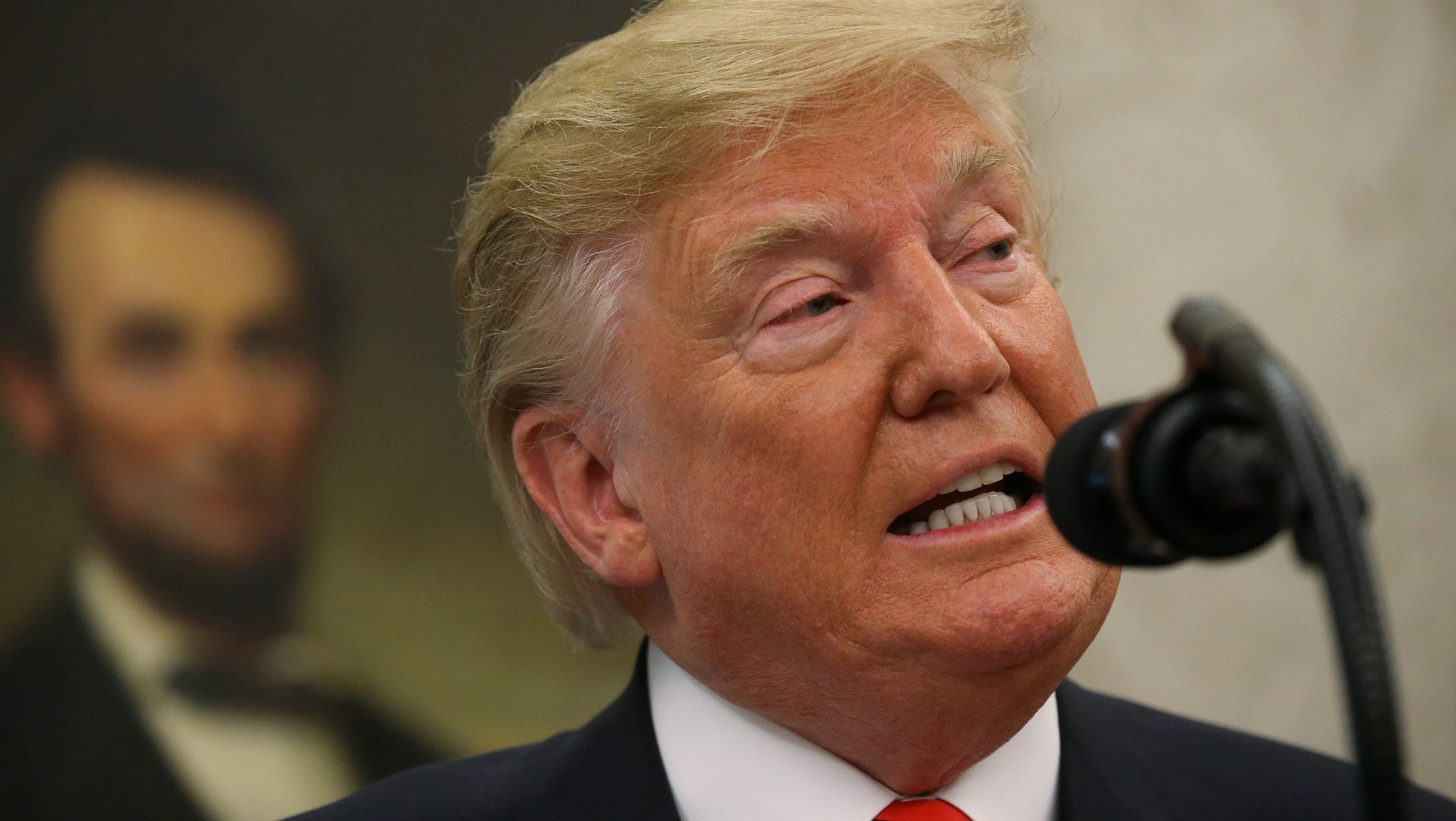Should politicians get to say whatever they want on social media?
Over the weekend, using his favorite medium, Donald Trump quoted a guest on his favorite TV show, saying that should he be impeached, “it will cause a Civil War like fracture in this Nation from which our Country will never heal.”


Over the weekend, using his favorite medium, Donald Trump quoted a guest on his favorite TV show, saying that should he be impeached, “it will cause a Civil War like fracture in this Nation from which our Country will never heal.”
Just a day earlier, his personal lawyer, Rudy Giuliani, issued a very similar, threatening statement.
To much criticism, Twitter’s policy has for years been to allow politicians to say what they want on the platform, under the guise of “newsworthiness.” In June, it formalized the rule, albeit with an important tweak: it would hide and label politicians’ tweets that violate these policies. However subtle, Twitter was taking a stance: it would not serve as a completely undiscerning megaphone for politicians.
But is that enough? As others have pointed out, Trump frequently makes false statements on social media, and has made other, similar threats. His presidency has underscored how we’re in an era where, through social media, politicians have access to the public without any sort of filter in the form of journalistic commentary, fact-checking, context, or vetting by staff (the precursor being live rallies, which have also made a big comeback).
Platforms like Twitter and Facebook, which last week announced a policy echoing Twitter’s, are putting themselves in a position of deciding what’s newsworthy, and what serves the public interest. They’ve now been these gatekeepers for years, but as it turns out, are still figuring what that role should look like. And that discussion has no easy answers, while the consequences are concerning.
Twitter went one way, deciding it would introduce some censorship of politicians’ speech, if they broke the platform’s rules. If there is such a breach, Twitter now places a screen that you have to tap on to see a Tweet, with “additional context and clarity.” The company also said it would ensure that these tweets would not get algorithmically elevated, all in an effort to “to strike the right balance between enabling free expression, fostering accountability, and reducing the potential harm caused by these Tweets.” But that, some argue, doesn’t address the root of the problem that platforms like Twitter created, by allowing hate speech and misinformation to swirl around for years.
It’s not just about the one tweet; it’s about the entire environment. “It’s important to stress that what Mr. Trump is doing is no different from what various autocrats and haters around the world are doing with social media platforms to push their malevolent agendas,” veteran technology reporter Kara Swisher observed in an op-ed for the New York Times. “With this latest move by the troller in chief, with no reaction from Twitter, it’s official that the medium has been hijacked by those who want to take advantage of its porous and sloppy rules.”
In fact, Twitter did not hide the latest tweets from Trump and Giuliani. And Trump’s tweet led to another one: an armed, right-wing militia talking about a “full-blown ‘hot’ civil war.”
Facebook took an even more hands-off approach. Last week, the company’s head of communications and policy, Nick Clegg, said in a speech that it was not the company’s role to censor politicians, and that it would not submit political speech to fact-checkers, and will generally allow it even when it violates the platforms’ rules. No hiding or labelling.
“Would it be acceptable to society at large to have a private company in effect become a self-appointed referee for everything that politicians say? I don’t believe it would be. In open democracies, voters rightly believe that, as a general rule, they should be able to judge what politicians say themselves,” Clegg said.
The two exceptions, Clegg added, are paid advertising and situations where the speech might lead to real-world harm and violence. (Twitter has similar provisions.) Of course, in the end, it’s up to the platforms to decide what is a threat, and what isn’t.
In this way, speech that is identical on Facebook and Twitter—many Trump tweets end up in the same form on his personal Facebook page—might be treated differently, likely further contributing to the information chaos that has become our everyday reality.
Dave Willner, the former head of content standards at Facebook, pointed out in a post on the platform described by Wired, that differentiating between a politician and a regular user was a hypocritical approach. “Restricting the speech of idiot 14-year-old trolls while allowing the President to say the same thing isn’t virtue,” Willner wrote. “It’s cowardice.”
And there is a flip side to the notion that politicians are not regular social media users. Also last week, a judge in New York ruled that Alexandria Ocasio-Cortez would have to testify in a lawsuit against her for blocking a user on Twitter. The lawsuit came after a federal court upheld a ruling that Trump violated the First Amendment by blocking some of his own followers. US courts have been pondering how to deal with these public forums for years.
It’s undoubtedly a strange situation where politicians are held to a lower standard than regular people. But what isn’t strange about a time where the algorithms, technology executives, and legions of traumatized content moderators are the arbiters of free speech?